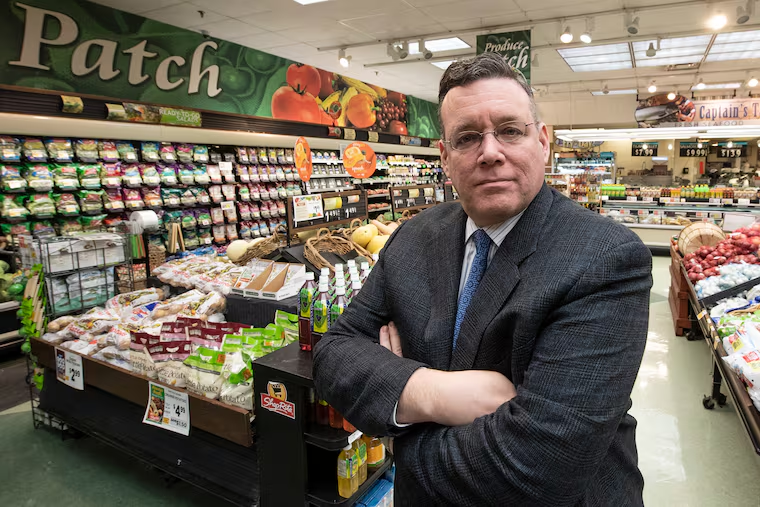Soda tax takes toll on stores near the city’s edge
It is quite possible that the beverage tax negatively impacted the financial position of the Shop Rite located near Philadelphia’s suburban border.

Once again, Philadelphia’s soda tax has hit the news.
This time, the broadside against the tax came from one of Philadelphia’s leading supermarket entrepreneurs, Jeff Brown. He announced that he was going to close one of his stores because of the impact of the tax on business at that store. While only Brown knows why the supermarket will be shuttered, it should surprise nobody that a business located near the edge of the city would bear the brunt of the soda tax’s effect.
Several years ago, I did research for the American Beverage Association on this issue. When it came to business impacts, it was clear that the negative effects would be felt most by firms located on the edge or borders of Philadelphia. Their suburban competitors could sell beverages at lower prices because they were not subject to the tax.
The ShopRite supermarket fits the profile of a firm most susceptible to harm: Beverages are a staple of its business and it is located near the city border.
The tax’s impact on a border supermarket is amplified because it is broadly based. The 1.5-cent-per-ounce tax is not just on sugar-sweetened beverages. Artificially sweetened products — diet products — are also taxed. This raised prices throughout the beverage aisle.
Though the city argued the tax was not being placed on consumers because it was levied on wholesalers, it is being passed through to retailers. In reality, it is nothing more than a consumption tax.
The tax did what taxes do: It raised prices. That reduced the demand for the taxed product, in this case sweetened beverages.
The problem facing edge businesses is twofold: First, total sales declined because of the higher costs. Border stores had little ability to absorb the tax as it could approach the sale price of the product.
But it was the second reason that likely made the major difference. Since beverages are often “loss leaders,” sold cheaply to attract shoppers, by raising the price of the product the tax reduced the value of beverages as an attractive force. In contrast, suburban stores, which are not taxed, could undercut the edge store prices and attract their customers. That would reduce demand for all products sold in the border stores, not just beverages.
Did that happen with the ShopRite store? Without financial statements, it is hard to know, but it would be surprising if a store so close to the suburbs did not see a decline in both beverage sales and overall sales.
And the decline did not have to be massive to make a difference. Supermarkets operate on a very narrow profit margin, generally estimated to be between 1 percent and 3 percent. A decline in general shopping could reduce that margin to close to zero or even push it into the red.
With the growing trend of meals being delivered directly to homes, either to be cooked or from restaurants, supermarkets have been coming under greater pressure. Add to that the preference of millennials to eat out rather than cook in and it becomes clear that relatively small changes in demand at supermarkets could lead to a store becoming unprofitable.
(As for the health benefits of the tax, those are not the focus of this column. But it should be noted that a study by the National Bureau of Economic Research found that the tax did little to change child consumption patterns for sweetened beverages. The consumption of soda by adults was lowered, but it will be many years before the health impacts will be known.)
Put simply, it is quite possible that the beverage tax negatively impacted the financial position of the ShopRite near Philadelphia’s suburban border. Given that Jeff Brown owns seven supermarkets in Philadelphia and is closing only one of them, it is very likely that the store being shuttered has suffered the most.
Was the beverage tax the straw that broke the ShopRite’s back? Again, without the data, that cannot be determined. But is it reasonable to believe that the beverage tax played a role, maybe even a major one, in forcing ownership to close the store? Absolutely.
Finally, we know about the ShopRite closing because it is a major store and the owner made a very public statement about the reason. How many other, smaller stores have closed quietly because of the tax? We will likely never know, but you can be sure there have been some.
Tax increases come with a price.